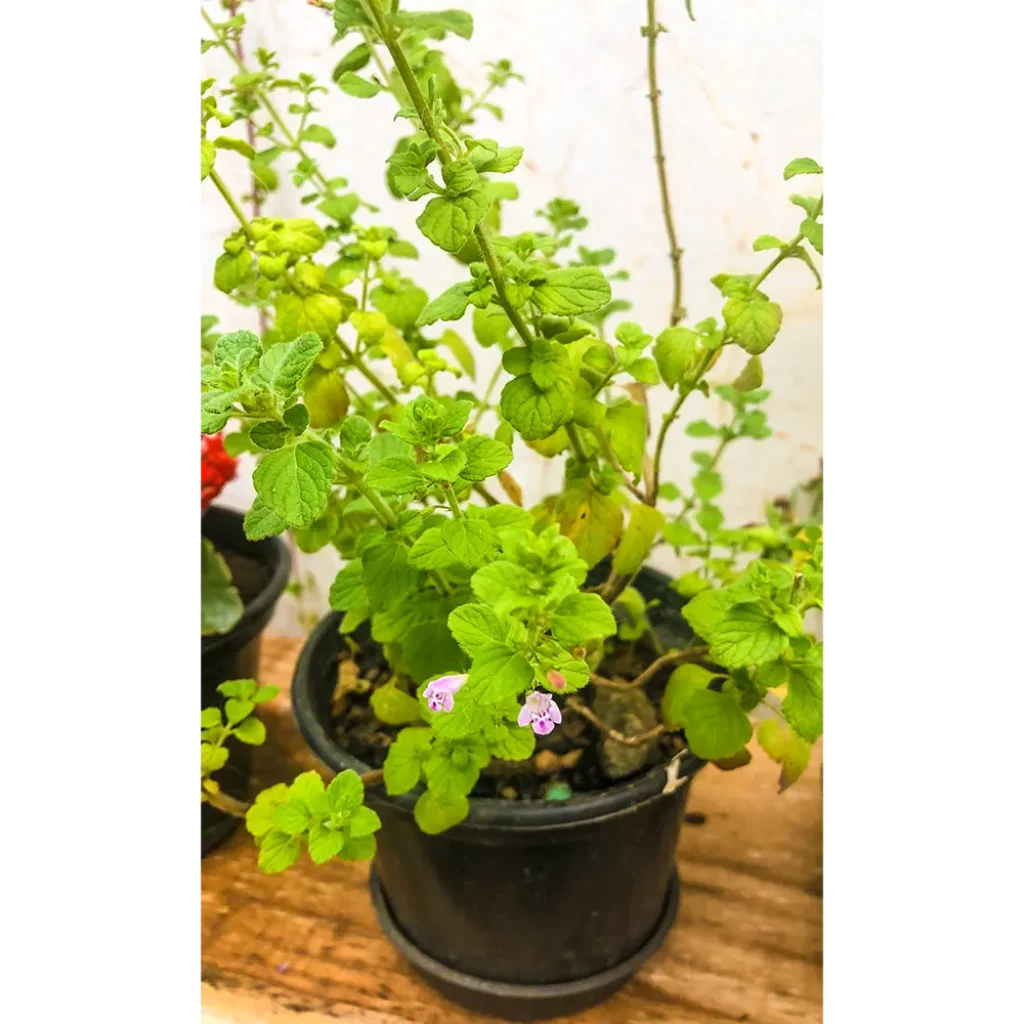
A mint plant is more than a fresh herb that makes your garden more fragrant; it also has lots of health benefits and multiple uses. If you want to improve your digestion, want to combat stress, or want to add a burst of freshness to your food, the mint plant is a great option. In this blog, we’ll explore the merits of mint itself, how to grow it, and some local sites to visit to get your whiffs in the great outdoors.
Table of Contents
1. Mint Plant: A Natural Aid to Digestive Difficulties
Mint (especially peppermint) has a long tradition of treating digestive complaints. Mint leaves contain menthol, which relaxes the muscles of the digestive tract and alleviates symptoms of bloating, indigestion, and gas. You can drink a cup of mint tea or add mint to your meals to soothe an upset stomach and help with digestion.
- Peppermint and Irritable Bowel Syndrome (IBS): Peppermint oil has been found to decrease IBS symptoms by relaxing the intestinal muscles, thus easing the digestive process.
- Aids Digestion: The pungent scent of mint prompts the salivary glands to produce more saliva, facilitating the breakdown of food and reducing the workload for the digestive system.
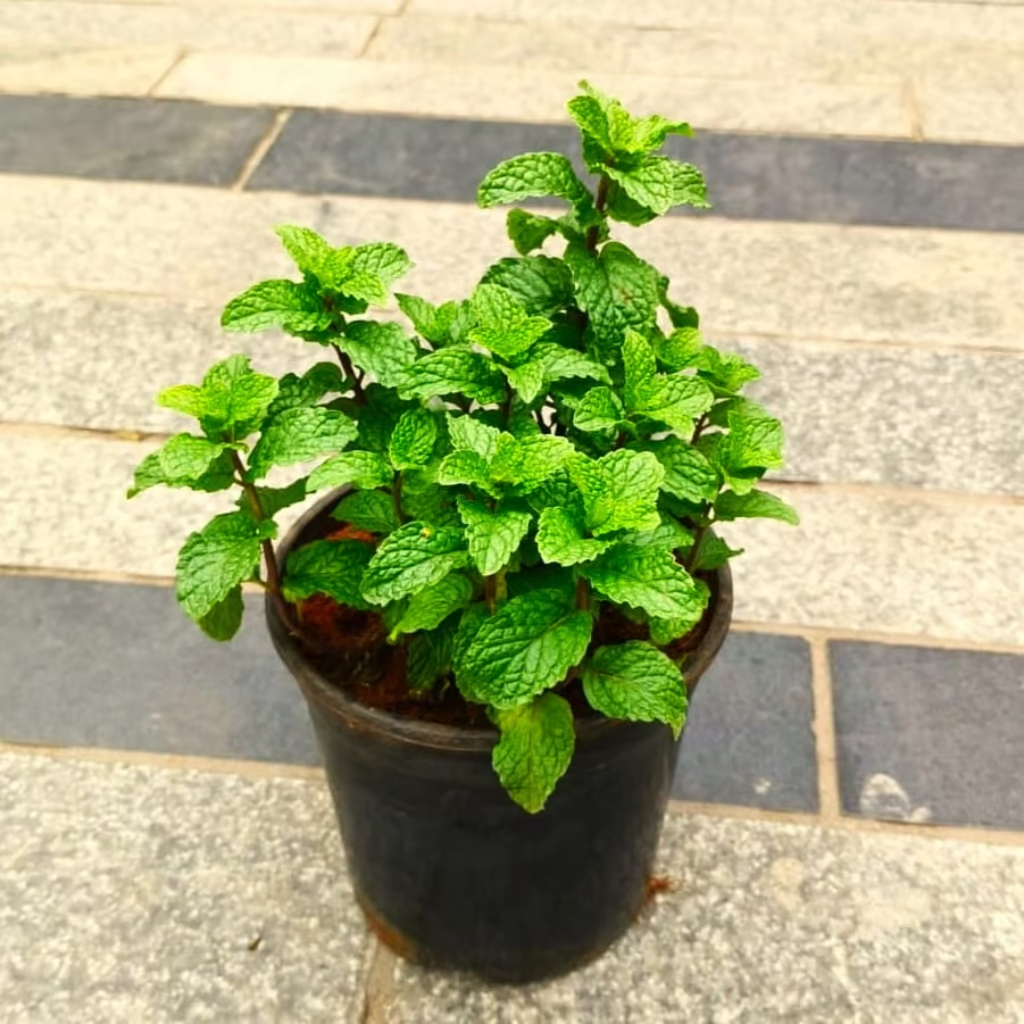
2. Mint Helps Optimize Respiratory Health
Mint is a potent treatment for respiratory problems, particularly in the season of cold and flu. The anti-inflammatory properties of menthol in mint make it an excellent way to relieve nasal congestion, irritation of the throat, and even coughing.
- Soothing Action: Used as a steam inhalate, mint is said to open the airways and make it easier to breathe if you have congestion or a sinus infection.
- Mint facilitates cough: A cup of mint tea or inhaling the vapor can calm the symptoms of a dry cough.

3. Relieves Stress and Anxiety
Mint naturally helps to relax the body and the mind, making it a natural stress reliever. It’s been said to relieve mental fatigue, calm anxiety, and create a sense of relaxation.
- Aromatherapy: Mint oil is usually utilized in aromatherapy to relax the mind and ease anxiety. Diffusing mint oil into the home does a lot to help improve mood and create calming surroundings!
- Mental Clarity: Mint has an airy and refreshing smell that can improve mental clarity and concentration, making it a good option for work or studying.
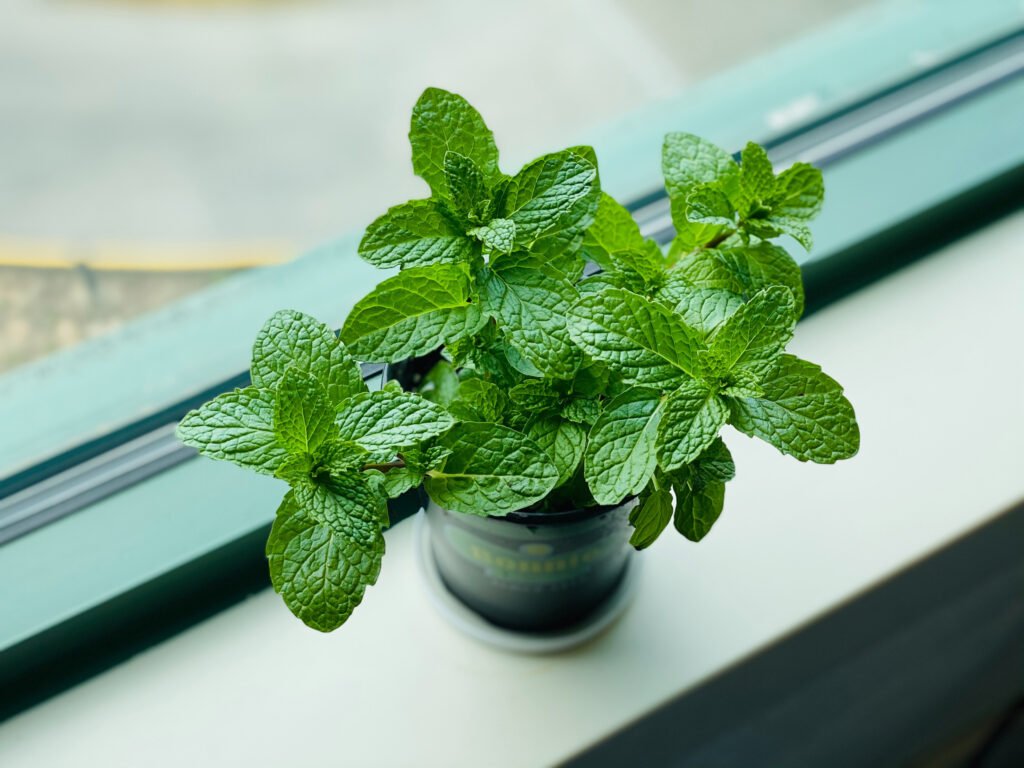
4. Mint is Good for Your Skin
Mint has a coolness to it, which helps in smoothing down the irritated skin. This helps in providing relief to acne, rash, or sunburns.
- Source of Salicylic Acid: Mint contains salicylic acid, which is a common ingredient used in acne treatments. It aids in purging the skin and relieving the associated inflammation during breakouts.
- Relief from Sunburn: The cooling properties of mint help provide instant relief from the stinging caused by sunburn. Redness is reduced, and the burning pain also reduces.
Also view : Plants Play in Our Planet’s Health and Beauty
5. Mint: Because mint is a natural breath-freshener
Freshening breath this is perhaps the most submitted mint benefit. Whether you chew on fresh mint leaves or mint-infused oral products, the herb fights bad breath.
- Natural Mouthwash: The antibacterial property of mint helps to kill the bacteria that cause halitosis, so mint can be a perfectly good alternative to chemical-filled mouthwashes.
- Chew on Mint Leaves: Mint leaves are a natural remover of odor-causing bacteria in your mouth.
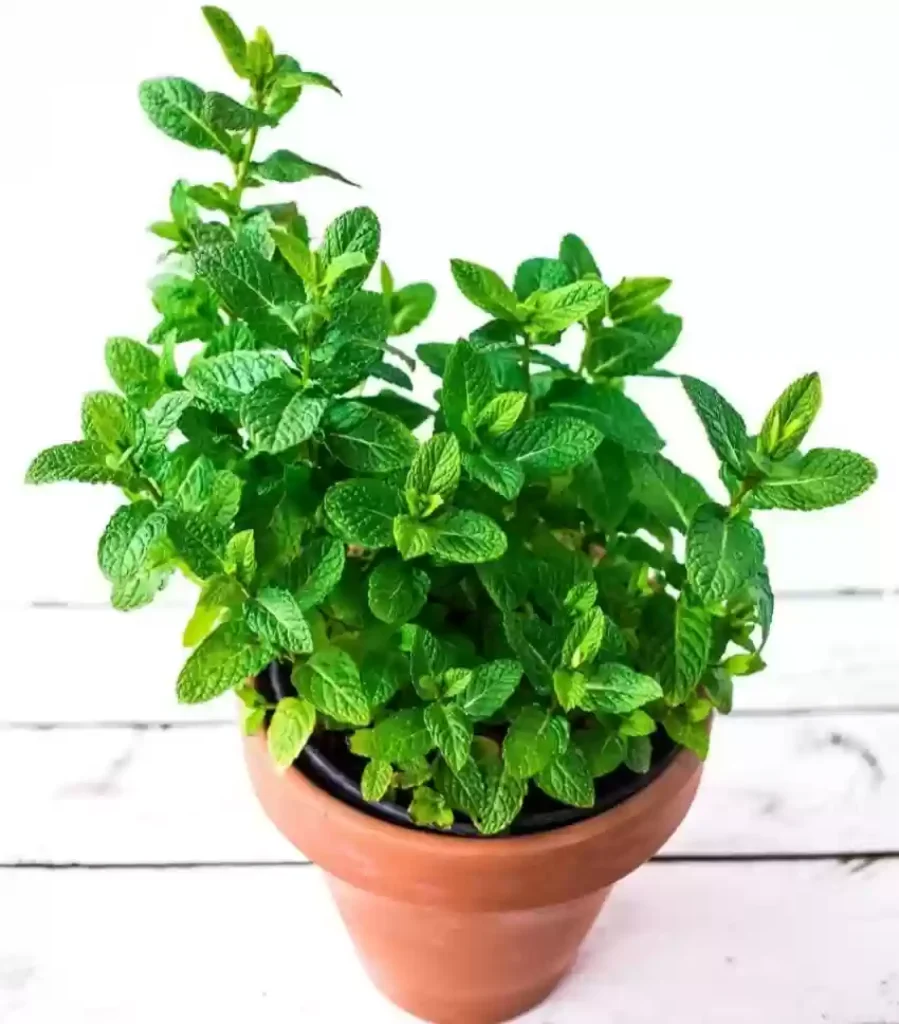
6. Mint Plant and Its Benefits: This Is Rich in Antioxidants
Mint leaves are known to be high in antioxidants that are protective to the body to help avoid damage from harmful free radicals. Antioxidants are substances that help protect against cell damage and lower the risk of chronic illnesses, including heart disease, diabetes, and cancer.
- Anti-Inflammatory: Mint includes antioxidants, which help lower inflammation in the body and the risk of different chronic health conditions.
- Increases Immunity: As mint is rich in antioxidant content, this helps in increasing immunity if consumed regularly.
7. Mint Supports Weight Loss
For weight loss, you can consume mint; it helps in metabolism and reduces appetite. Mint tea or mint leaves in your meals can help you with better digestion and also avoid overeating.
- Appetite Suppressant: The refreshing taste of mint can help to suppress cravings and reduce emotional eating.
- Increases Metabolic Processes: Drinking mint tea in the morning will get your metabolism going, which is very important for effective weight loss.
8. Mint Plant for Skin and Hair Health
Mint is beneficial for nutrition; not only does it aid digestion, but it is also good for your skin and hair.
- For Hair Growth: Mint has menthol that stimulates blood circulation to the scalp. As a result, it helps with accelerating hair development and delaying ‘’dandruff’’ manufacturing.
- Moisturizing Skin: The menthol in mint can provide a cooling effect and aid in hydrating the skin. It is also an ingredient in homemade face masks that help control oiliness and keep skin feeling clean and fresh.

9. A mint plant boosts the Appearance of Your Garden
Mint is a really nice plant for a garden. It is visually appealing to grow because of its vibrant green leaves and delicate flowers, making it a suitable herb for small and large spaces.
- Simple to Grow: Mint is simple to develop, and it produces well no matter what, out of doors or indoors.
- Ideal for Companion Planting: Mint can be planted as a companion plant in the garden since it repels pests, including aphids, ants, and mosquitoes.
10. Enjoy the Refreshment of Mint as a Beverage
Mint is a great ingredient if you want a refreshment. Mint tea, mint lemonade, and mint-infused water are tasty, refreshing, and full of health benefits.
- Mint Tea: A cup of mint tea is a great way to relax and enjoy the many benefits of the herb.
- Minty Water: To spice up better health, try adding a couple sprigs of mint to your water for a refreshing and good for you beverage.

How to Grow Mint at Home
Mint is one of the easiest plants to grow & requires no effort at all to grow them. Mint is a hardy plant that does well in the garden or in a container.
- Select an Appropriate Container: Mint is invasive and can spread rapidly; growing it in a container prevents it from taking over the garden.
- Planting and Care: Mint likes a sunny spot but will also do well in partial shade. Be sure to water regularly, but keep the soil moist, and prune the plant in order to encourage new growth!
Nearby Attractions to Explore
Your mint plant may be well suited for home use, but when ready, you could explore nearby attractions with relaxing green spaces that provide a reprieve for your mind and spirit. On the off chance that you need to loosen it up, check out gardens, parks, or botanical gardens where you hear the fun-loving scents of mint as well as various plants.
- Botanical Gardens: Most botanical gardens have mint and other aromatic plants. Walk among them to feel one with nature.
- Herbal Farms: Visit herbal farms with the opportunity to learn about growing herbs (such as mint) and even buy fresh herbs you can cook with and/or use for medicinal use.
- Nature Parks: Take a day trip to a local park to get outdoors, even if the weather is chilly, and explore native plants that you could grow at home.
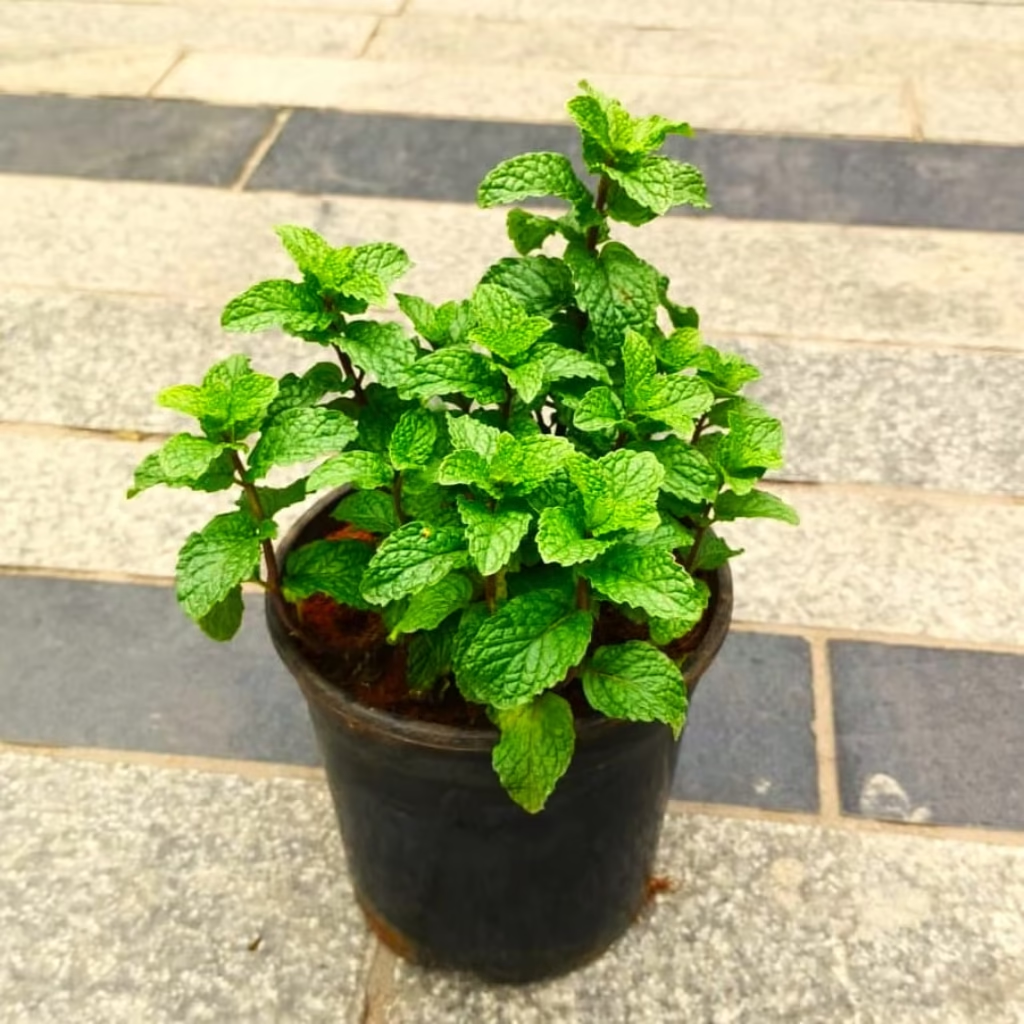
Frequently Asked Questions on the Mint Plant and Its Benefits
Can mint help with headaches?
Yes. During headaches, the menthol in mint has a soothing effect. Relief comes from applying mint oil to the temples or drinking mint tea.
Is mint good for your skin?
Yes, mint has a cooling and anti-inflammatory effect that can calm the skin, reduce acne and even soothe sunburn.




